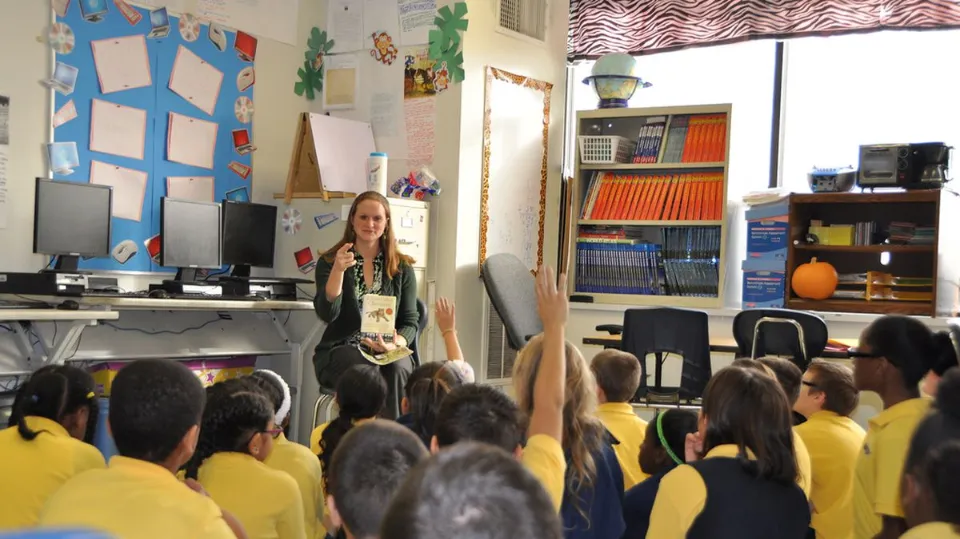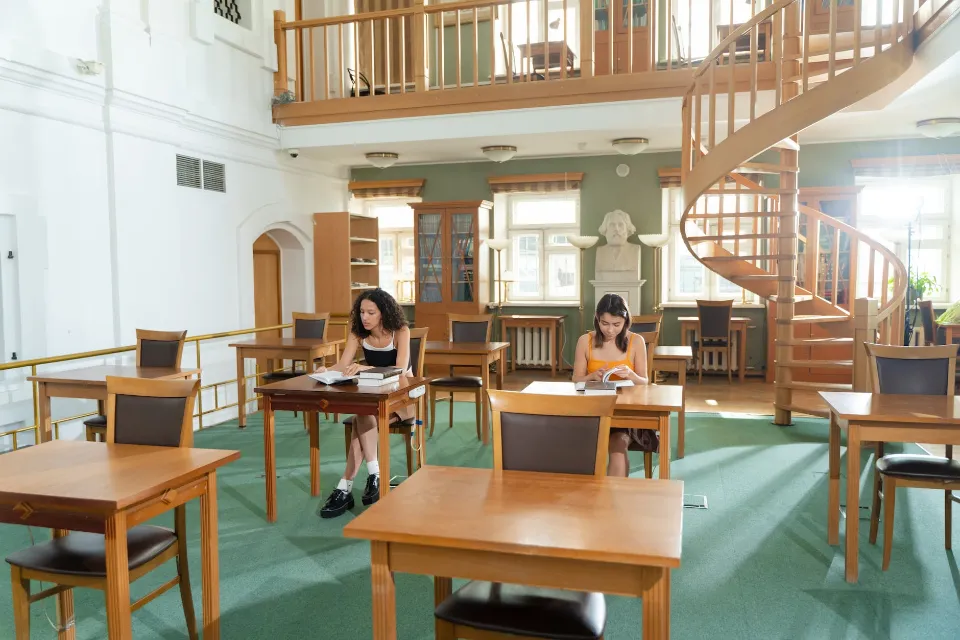
Private School vs Charter School: How are They Different?
Charter Schools vs Private Schools? We outline the main distinctions between charter schools and private schools in this article.
Concerning their children’s education, parents are being misinformed. If you’re like most parents, you might believe charter schools and private schools are comparable, if not the same. The learning opportunities they offer to your student differ greatly between these two categories of schools in reality.
A comparison of charter and private schools can be found below. Where they are distinct from one another, where they overlap, and where they are merely identical.
What’s a Charter School?
A publically supported but privately run educational facility is known as a charter school.
First off, this implies that funding for charter schools comes from government agencies. Charter school students don’t have to pay tuition because, second, the amount of funding they receive is based on the number of students.
Charter schools are founded based on a governing principle named “a charter” (hence the name).
In addition to being developed by parents, educators, and administrators, sponsoring organizations may include private businesses, nonprofit educational institutions, or even private individuals. Both teachers and students, they should be crystal clear about the school’s guiding principles and essential success factors.

All charter schools concentrate on a single mission. They might concentrate on project-based learning, the arts, or STEM-based education. A state, county, or municipality must approve them.
What’s a Private School?
Private schools are private educational institutions that are managed by private people. They are supported by student tuition and private donations; they do not receive any government funding.
Religious education is mandated and is a requirement in many private schools. More than 40% of them are managed in the United States by Catholic Church-related organizations.
There are numerous other varieties of private schools, including boarding schools and schools that take a particular approach (Montessori, Waldorf, etc.).), language-specific schools, and others.
Private schools have more freedom over who they admit, and they are exempt from some federal requirements if they do not receive federal funding. They must, however, abide by fundamental state laws pertaining to teaching, reading, and math.
In the United States, 10% of children are homeless. are enrolled in K-12 private schools.

Charter Schools Vs. Private Schools: Differences
While most people are familiar with private schools, charter schools can be a more abstract idea. Many parents are unsure if charter schools are public, private, or some combination of the two.
In spite of the fact that they are privately run public schools, charter schools have a lot of differences from both traditional public schools and private schools.
Fund
Private and charter schools promote the freedom to make decisions on their own, independently, and autonomously, without interference from the government. Although there is some truth to this, it is also a little misleading because expectations are bound to arise whenever two parties exchange money.
Charter schools, although independently run, are still required to meet the standards outlined in their charter if they hope to receive their state funding. They have more regulatory latitude than a public school, but less than a private one.
Private schools receive zero state or federal funding, leaving them completely independent from the government. Private schools do, however, view parents somewhat as clients and investors because they rely solely on student tuition and private donations.
Private schools must consider the objectives and concerns of parents in lieu of government rules or risk losing funding.
Tuition Costs
Frequently, parents believe that tuition is charged at both private schools and charter schools. In fact, charter schools don’t charge tuition; private schools do.

The average annual tuition for private schools is $12,350, according to an EducationData report. Charter schools cannot, however, levy tuition under the law. On the contrary, attendance is totally free.
Admission Requirements
Admission standards are yet another significant distinction between charter schools and private schools. When it comes to admissions, private schools are frequently picky. Before your child is allowed to attend, they frequently have entrance exams or other requirements.
Since financial stability and a strong academic foundation are frequently required for enrollment, this generally results in less diverse student populations at private schools.
All students within a specified jurisdiction may attend charter schools, and they are not allowed to discriminate in the admissions process. Charter schools are legally required to admit students on an open basis and are also bound by anti-discrimination laws. When class sizes are full, charter schools use a lottery to choose new students.
Accountability
Public charter schools and traditional public schools have different standards for academic performance because of how they are funded and operated. Public charters must uphold agreed-upon charters even though they typically have more latitude in teaching methodologies or academic approaches than conventional public schools.
Charter schools must maintain these agreements by meeting academic standards. Federal education laws must also be adhered to.
Private educational institutions essentially run alone. Private schools are exempt from many regulations and are not bound by performance or academic curriculum requirements.
Student and Teacher Demographics
Additionally, the student body compositions of charter schools and public schools vary. In general, compared to private schools, charter schools serve a much more diverse student population.

The National Center for Education Statistics (NES) found the following demographic information for the 2017-18 school year:
- More public charter schools than private schools served a student body that was more than 50% black.
- Comparing public charter schools to private schools, there were 21% more public charter schools with a student body that was more than 50% Hispanic.
- Compared to 32% of public charter schools, 72% of private schools had student populations with 50% or more white students.
Teaching Credentials
A final, significant distinction between private schools and public charter schools is the qualifications and standards for teachers. According to California law, certified teachers must hold a teaching credential or other document issued by the Commission on Teacher Credentialing that is equivalent to the requirements of traditional public schools.
These same hiring requirements do not apply to private schools. Private schools may actually hire any teacher, regardless of whether they have a teaching credential or not.
Religious and Political Influence
You might have noticed that a lot of private schools are affiliated with certain churches, religious organizations, or political parties. Private schools frequently operate under the influence of these external organizations because they receive private funding.
This implies that private schools are also able to incorporate concepts and ideas from these kinds of groups into the classroom. In fact, it’s not unusual for private school students to have to take required religious classes.
However, charter schools are required by law to avoid letting religion or politics influence their curriculum, admissions policies, or hiring practices. This means that charters are not permitted to give these organizations control over the curriculum.
Charter Schools Vs. Private Schools: Similarities

While there are some similarities between charter and private schools, there are also more differences than similarities. That’s why these two systems are frequently confused by people.
These are the features that both systems share.
Alternatives to Traditional Public Schools
More flexibility is offered in the curriculum at both charter and private schools. In terms of flexibility, the differences between charter and private curricula are less significant than those between public and private school curricula.
Autonomous from Certain State Government Regulations
They are both autonomous institutions. Private schools are subject to certain fundamental state requirements, and charter schools are required to adhere to particular criteria in order to receive funding.
Is a Charter School Better Than a Private School?
Charter schools aren’t superior to private schools, I wouldn’t dare say that. Depending on your needs, I believe they are simply different.
If you’re trying to find a place that shares your religious beliefs, a private school might be your best bet. Some private K–12 schools also have a strong focus on nurturing gifted and high-achieving children. Because of this, you might also be eager to spend more money on your child’s education if this is the case.
Families who are dissatisfied with the public education system but cannot afford to pay a lot of money for their child’s school may find that charter schools are a better option.
It’s also a good choice for parents who want to steer clear of political or religious affiliations when deciding on their child’s educational path.


